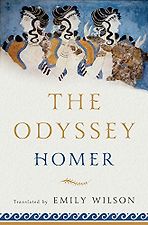Recommendations from our site
“It’s just a fascinating book and a great way into existentialism. You might not come out of it with a very sophisticated conceptual system of existentialist ideas, but you do come out of it — well I did anyway! — with curiosity to read more. It leads you on to his great work, Being and Nothingness, which explores the same ideas, but from a philosophical perspective…It’s readable, it’s powerful, it’s sometimes a bit ridiculous, but it’s intense. Although it is a novel, it’s a novelization of philosophical ideas, so you approach the philosophy through one literary character’s individual crisis and you approach that crisis through a sequence of ideas. It’s the story of a man called Roquentin, who undergoes a kind of philosophical nervous breakdown while he’s trying to write a biography of an 18th-century character, the Marquis de Rollebon. He tries to narrate a coherent story about that life, but instead Roquentin finds himself overwhelmed by things. The sheer physical being of the world around him causes a kind of nauseous horror and this crisis leads him to think about what are, in fact, all sorts of existentialist questions: what it is to be free, what it is to be human, what is to be able to look at other people and be looked at by other people, to be in time, to be in history, to try and impose some kind of sense or narrative on the raw facts of existence.” Read more...
The best books on Existentialism
Sarah Bakewell, Philosopher
“It’s a diary of Roquentin, a 30-year-old Frenchman (although in the novel he feels much older to me) who’s been travelling, and he’s come back to France and is narrating his days and his experience of being a misanthrope and being ill at ease with himself. He gives this malaise the name ’nausea’: which I think is some kind of consciousness of your own existence, and the existence of everything else, and the horror and disgust he has at that and at himself. I suppose the question is whether Sartre is describing some kind of real existential condition, whether he’s having an insight into human nature, or whether actually this really isn’t at all how we think and feel and live, in which case Roquentin is mentally ill. So the question of mental illness comes down to whether Sartre’s right about his philosophy, which is an interesting question.” Read more...
The best books on Mental Illness
Samantha Harvey, Novelist










